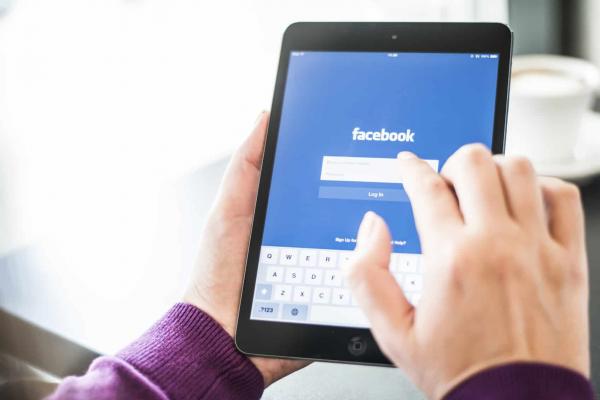
Facebook is everywhere. It's on your phone, laptop, tablet, watch, TV and even on your mind when you're not thinking about it.
In fact, Facebook is such a widespread social media network that some have begun to feel dependent upon it, a new study found.
People who often use Facebook to read the news, play games, meet new people or get feedback on their posts may be dependent on the social network, a press release said. Most signs for dependency rely on a user's need for information and entertainment, like "about the local festival scheduled for this weekend," the press release said.
But this isn't necessarily a bad thing. Some people use Facebook as a way to get personal feedback on their goals, even though that makes them rely more heavily on the social network. People who use Facebook often are also sometimes searching for "a deeper understanding of themselves."
"They might post that they went to the gym. Maybe they'll share a post expressing a certain political stance or personal challenge they're facing. They rely on feedback from Facebook friends to better understand themselves," Ferris said in the press release.
Those users may also use Facebook as a way to cope with problems, since they gain insight from their friends and followers about how to deal with tragedies and stressful situations, the study said.
To find this, researchers studied 301 Facebook users from 18 to 68 years old who used the site at least once a month. They found those who see Facebook as helpful would also go to the site to meet new people and look for attention from their followers.
Too much Facebook use has been a cause of concern for some researchers. A study out of Poland earlier this year found that too much time on Facebook could lead to depression. Some may call this addiction, while others said it is merely a side affect of becoming too dependent on Facebook, Reuters reported.
"A large body of research "� shows that Internet addiction often co-occurs with other disorders, such as depression, loneliness, sexual dysfunction, or other addictions," the study team wrote, Reuters reported. "The main aim of our study was to answer the question of whether depression and daily Internet use time was related to Facebook intrusion."
Of course, this isn't true for everyone, since personality traits affect how you use Facebook and what you gain from it. For example, Dr. Robert Cloning from Washington University School of Medicine in St. Louis told Reuters that introverted people are more likely to be dependent on Facebook because of their shyness.
"If you are introverted and socially shy, then your social skills may not be very good," he said. "So using your intelligence to navigate the Internet allows you to create an image that may not be very accurate, but that gets you social contacts - it's like you can kind of live a lie or a fantasy on the Internet."
Facebook is also known to be bad for one's mental health since it makes people feel too nostalgic about their past, and it may even create "something of an identity crisis" for users, Medical Daily reported.
In fact, a study out of the University of Michigan found that people often become more unhappy with more Facebook use, experiencing levels of worry and loneliness. These feelings are often created when people see that their friends are getting more likes than they are.
But this doesn't apply to everyone. In fact, most users use Facebook "to lift their spirits when they're feeling down by navigating their old photos and wall posts in which they've interacted with family and friends," ThinkProgress reported.
This is according to a 2013 study out of the University of Portsmouth, which found that people will use Facebook as a sort of "self-soothing" program to calm their stresses by revisiting old photos, videos and timeline posts, The Huffington Post reported.
"Facebook is marketed as a means of communicating with others," psychologist Clare Wilson said. "Yet this research shows we are more likely to use it to connect with our past selves, perhaps when our present selves need reassuring. The pictures we often post are reminders of a positive past event. When in the grip of a negative mood, it is too easy to forget how good we often feel. Our positive posts can remind us of this."
More from our family section
This NFL player just got fined $10,000 for ... being a dad?
Frustrated father speaks out against Macy's for not having a diaper changing station
Woman surprises long-distance boyfriend with a quest that brings them closer together

